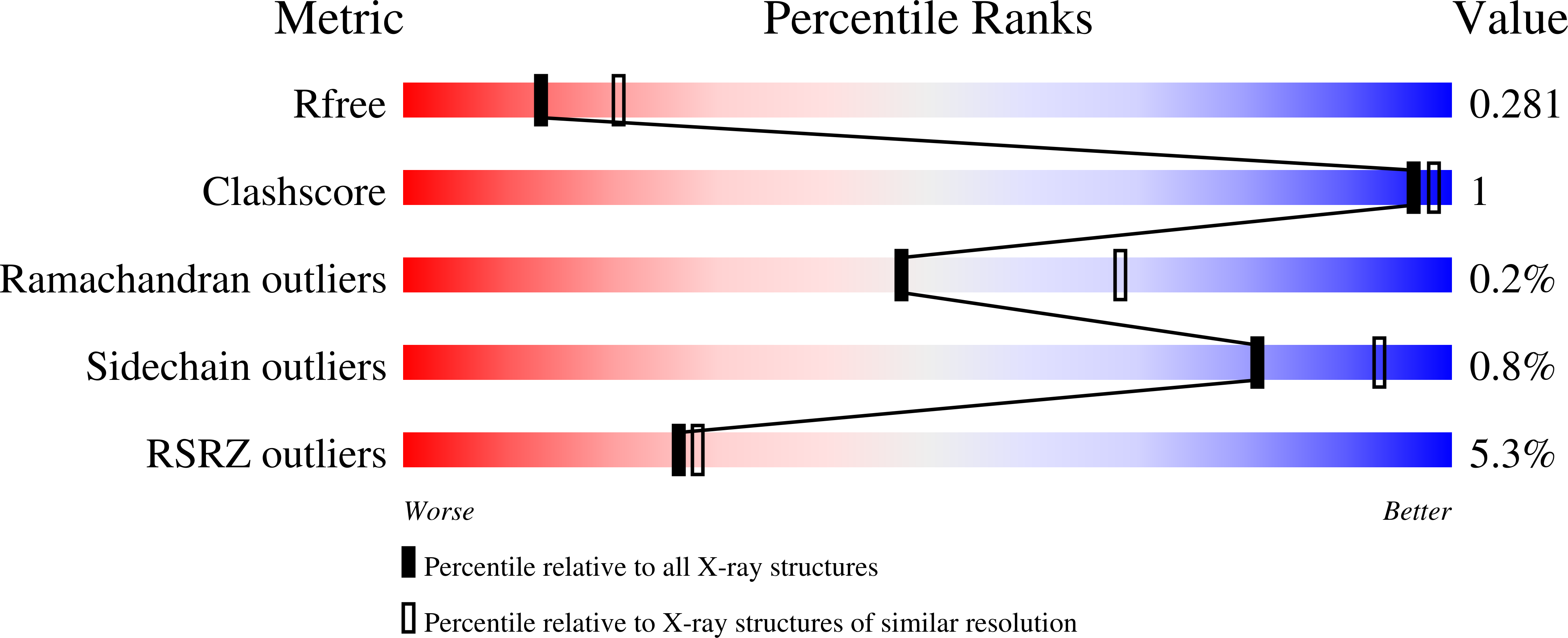Small-molecule inhibitor of OGG1 suppresses proinflammatory gene expression and inflammation.
Visnes, T., Cazares-Korner, A., Hao, W., Wallner, O., Masuyer, G., Loseva, O., Mortusewicz, O., Wiita, E., Sarno, A., Manoilov, A., Astorga-Wells, J., Jemth, A.S., Pan, L., Sanjiv, K., Karsten, S., Gokturk, C., Grube, M., Homan, E.J., Hanna, B.M.F., Paulin, C.B.J., Pham, T., Rasti, A., Berglund, U.W., von Nicolai, C., Benitez-Buelga, C., Koolmeister, T., Ivanic, D., Iliev, P., Scobie, M., Krokan, H.E., Baranczewski, P., Artursson, P., Altun, M., Jensen, A.J., Kalderen, C., Ba, X., Zubarev, R.A., Stenmark, P., Boldogh, I., Helleday, T.(2018) Science 362: 834-839
- PubMed: 30442810
- DOI: https://doi.org/10.1126/science.aar8048
- Primary Citation of Related Structures:
6G3X, 6G3Y - PubMed Abstract:
The onset of inflammation is associated with reactive oxygen species and oxidative damage to macromolecules like 7,8-dihydro-8-oxoguanine (8-oxoG) in DNA. Because 8-oxoguanine DNA glycosylase 1 (OGG1) binds 8-oxoG and because Ogg1 -deficient mice are resistant to acute and systemic inflammation, we hypothesized that OGG1 inhibition may represent a strategy for the prevention and treatment of inflammation. We developed TH5487, a selective active-site inhibitor of OGG1, which hampers OGG1 binding to and repair of 8-oxoG and which is well tolerated by mice. TH5487 prevents tumor necrosis factor-¦Á-induced OGG1-DNA interactions at guanine-rich promoters of proinflammatory genes. This, in turn, decreases DNA occupancy of nuclear factor ¦ÊB and proinflammatory gene expression, resulting in decreased immune cell recruitment to mouse lungs. Thus, we present a proof of concept that targeting oxidative DNA repair can alleviate inflammatory conditions in vivo.
Organizational Affiliation:
Science for Life Laboratory, Department of Oncology-Pathology, Karolinska Institutet, S-171 76 Stockholm, Sweden.



















